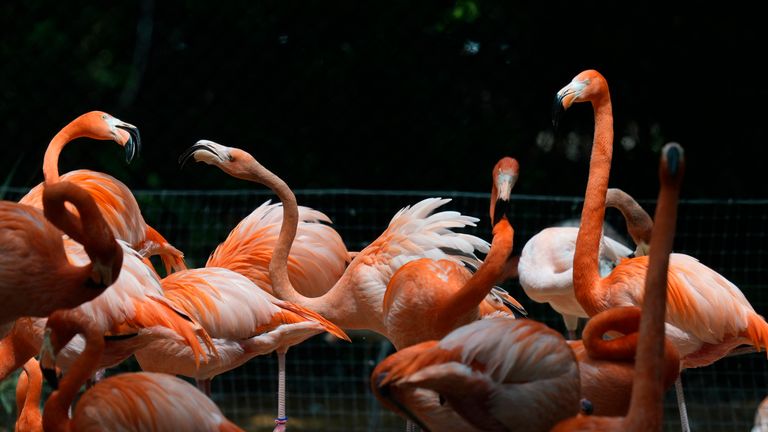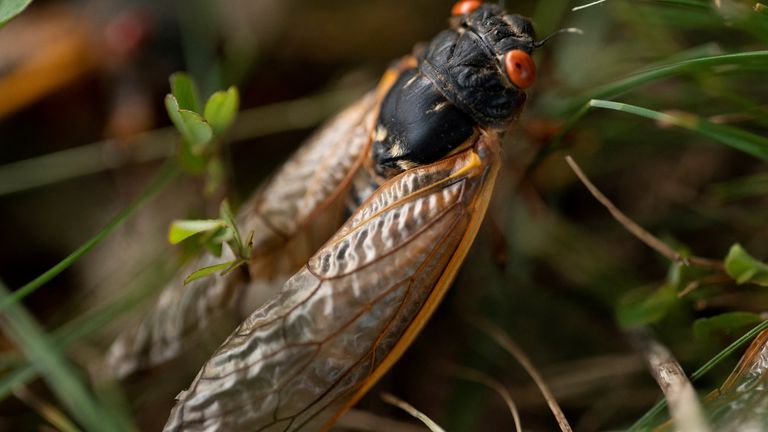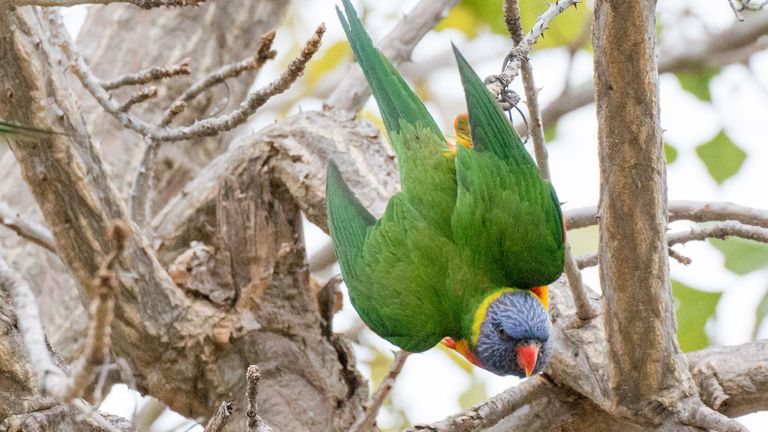While people across North America may have reacted in a range of surprising ways as they witnessed a total solar eclipse on Monday, humans were not the only species displaying unusual behaviour during the rare celestial event.
A team of 40 people at Fort Worth Zoo in Texas watched as their animals offered some interesting responses to the sun going dark in the middle of the day.
“Our gorilla troop got up and walked to the door like it was time to go in for the night,” Dr John Griffioen, who led the team, told Sky News.
“Two of our flocks of flamingos got much closer together.
“They started vocalising a lot more, and one of them even started marching, which is a group bonding behaviour.”
On a marsh in Nevada, researchers listened as coyotes began yipping and a barred owl started hooting and flying around.
Kim Rosvall, a biologist in Indiana who has been studying life on the marsh, called the experience “incredible” on X.
Although there’s an eclipse around every 18 months, very little is known about how animals react to them.
The studies that do exist show animals acting very strangely.
During an eclipse in Mexico in 1991, scientists watched as colonial orb-weaving spiders tore down their webs during the darkest part of the eclipse.
As soon as the sun returned, the spiders rebuilt their webs.
In Arizona, scientists collecting cicadas noticed they stopped singing when the sun had been 50% obscured. It took 40 minutes for them to start making noise again.
And giraffes, baboons, gorillas and lorikeets all display anxious behaviour during eclipses, as reported in the brilliantly named Total Eclipse of the Zoo study, where researchers recorded how animals at Riverbanks Zoo in South Carolina reacted to the eclipse in 2017.
Giraffes began “coordinated swaying” and baboons clustered together despite normally splitting into small groups.
Lorikeets, a colourful member of the parrot family, began “coordinated swooping”, got noisy and then followed it with “communal silence”.
Read more:
Total solar eclipse plunges parts of Mexico, US and Canada into darkness
Total solar eclipse – best video and pictures
Solar eclipse chaser travels from UK to Toronto to witness spectacle for 7th time
In fact, 75% of the zoo’s animals reacted to the eclipse.
But animals’ responses to solar eclipses is relatively unstudied. Now, scientists want your help.
Three major studies asked people to submit their observations of animals, insects and birds behaving weirdly during the eclipse.
NASA now wants people to help them analyse their findings.
The agency says a portal will soon open on its Eclipse Soundscapes website offering the opportunity to become a data analyst and help work out just what the rare eclipse did to animals.


